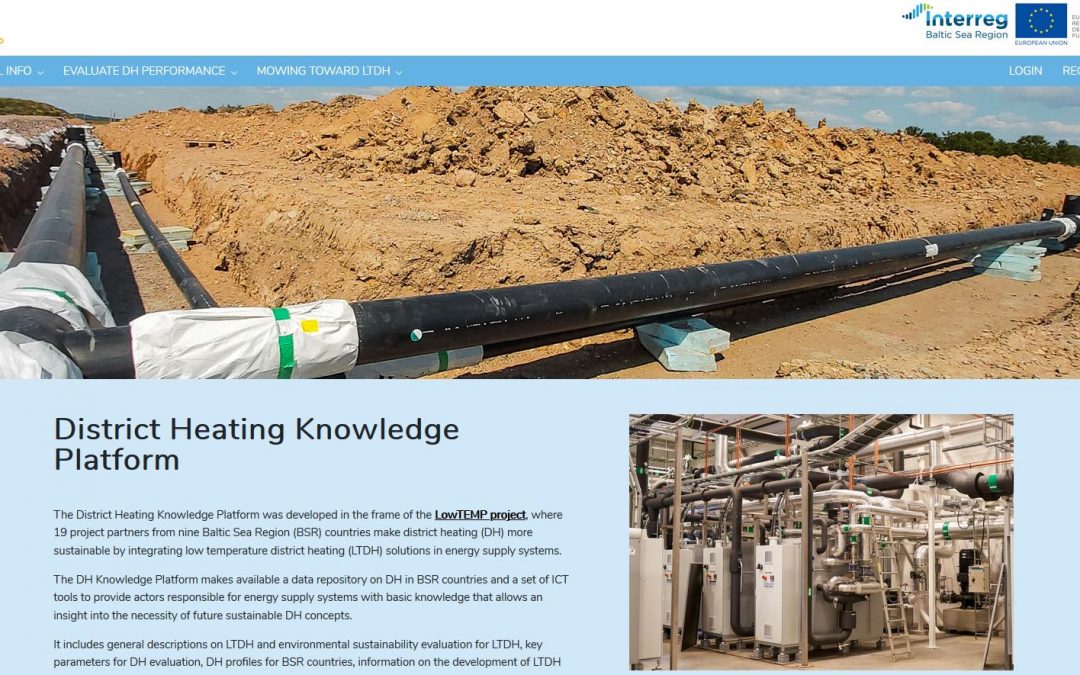Efficient district heating (DH) systems are an important component to achieve sustainable energy supply and thus contribute to reducing energy waste and greenhouse gas (CO2) emissions. To support this, the LowTEMP project raises know-how among the responsible public and private stakeholders on the necessity to deploy smart and sustainable energy supply systems. These systems allow the use of renewable or unused surplus heat and low temperature heat distribution.
The DH Knowledge Platform was developed as an essential information and data collection, providing a basis for all relevant actors intending to learn about and install modernised heating strategies and systems. To achieve this, the LowTEMP partners collected DH data in their countries, e.g. on the efficiency of existing heating systems, heating demand, grid operators and the use of renewables, and compiled further relevant information, e.g. on the assessment of the sustainability of DH systems and LTDH cases. The DH ranking and comparison tool helps to compare and analyse data on heat and energy performance of different regions for the potential development of a LTDH strategy. When moving towards LTDH, the platform also makes available information on the development of LTDH strategies, financing schemes and business models. Through this comprehensive knowledge platform, municipal representatives responsible for energy management, heat suppliers and energy utilities, energy agencies, planners and engineers get an insight into the necessity of future sustainable DH concepts and by this, are supported in the planning and management of existing and future energy supply systems.
In the frame of the LowTEMP project, partners also develop comprehensive learning material on innovative strategies and tools to plan, finance and manage LTDH systems until the end of 2020. Training materials will be available for other BSR municipalities, energy agencies, planners and DH suppliers, thus increasing the durability of the project knowledge and outcomes. As an essential information and database, the DH Knowledge Platform supports the capacity building that takes place via this training programme.
Background:
LowTEMP is supported by the European Union (European Regional Development Fund, ERDF, and European Neighbourhood Instrument, ENI) under the Interreg Baltic Sea Programme 2014-2020. Interreg enables transnational cooperation to tackle common challenges that do not stop at national borders, such as the rising carbon footprint. The LowTEMP project partners come from Poland, Germany, Denmark, Sweden, Finland, Estonia, Lithuania, Latvia and Russia.
The LowTEMP project contributes to the objectives of the EU2020 strategy by promoting energy efficiency, the use of renewable energy sources and the reduction of CO2 emissions. It also makes important contributions to the objectives of national and European spatial development policies and to the EU Strategy for the Baltic Sea Region (EUSBSR)
The aconium GmbH developed the project on behalf of the Lead Partner IMP PAN (Institute of Fluid-flow Machinery, Polish Academy of Sciences) and is responsible for the project, financial and communication management. The aconium GmbH supported the project partner Klaipeda University as the Work Package Leader for the development of the DH Knowledge Platform.

